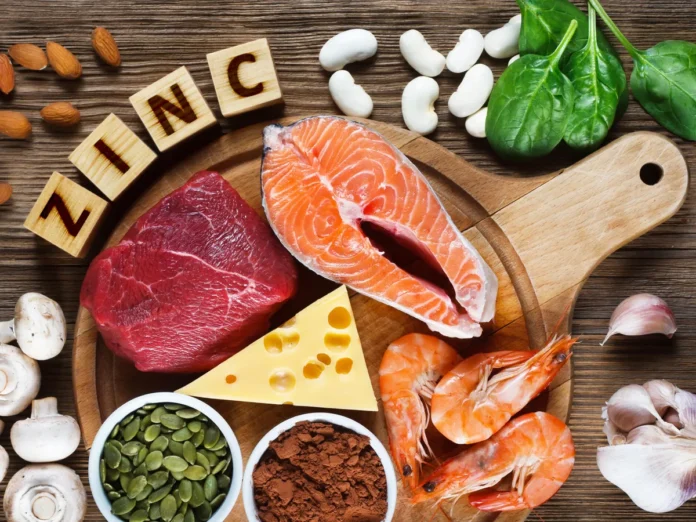Zinc is an essential mineral that plays a crucial role in various bodily functions, including immune response, protein synthesis, wound healing, and DNA synthesis. It is also important for maintaining proper insulin function, which is why adequate zinc levels may help prevent diabetes or manage it better.
Role of Zinc in Preventing Diabetes:
- Insulin Regulation: Zinc is crucial for the proper synthesis, storage, and secretion of insulin, a hormone that regulates blood sugar levels. Zinc binds to insulin in the pancreas, ensuring it is stored and released effectively when needed.
- Antioxidant Properties: Zinc has antioxidant properties that help reduce oxidative stress, a condition linked to the development of diabetes. Oxidative stress can damage pancreatic cells, impairing their ability to produce insulin.
- Anti-inflammatory Effects: Zinc reduces inflammation, which is often associated with insulin resistance and the development of type 2 diabetes.
- Glucose Metabolism: Zinc is involved in the metabolism of carbohydrates, aiding in the efficient utilization of glucose by the body, which is critical in preventing spikes in blood sugar levels.
Foods Rich in Zinc:
To overcome zinc deficiency and potentially reduce the risk of diabetes, include the following zinc-rich foods in your diet:
- Meat:
- Beef: Particularly high in zinc, providing a significant portion of the daily requirement in a single serving.
- Lamb and Pork: Also good sources of zinc, contributing to overall intake.
- Shellfish:
- Oysters: One of the best sources of zinc, with just a few oysters providing more than the daily requirement.
- Crab and Lobster: Other shellfish like crab and lobster are also rich in zinc.
- Legumes:
- Chickpeas, Lentils, and Beans: These plant-based sources are rich in zinc, though they also contain phytates that can inhibit zinc absorption. Soaking and cooking legumes can reduce phytate levels.
- Seeds:
- Pumpkin Seeds: Particularly high in zinc and can be easily added to various dishes.
- Sesame Seeds: Another good source, often used in tahini or sprinkled on salads.
- Nuts:
- Cashews and Almonds: Provide a decent amount of zinc along with healthy fats and other nutrients.
- Peanuts: A readily available source of zinc.
- Dairy Products:
- Milk and Cheese: Both are good sources of bioavailable zinc, which means the body can easily absorb it.
- Eggs:
- Egg Yolks: Contain a moderate amount of zinc, contributing to overall intake.
- Whole Grains:
- Quinoa, Brown Rice, and Oats: Provide zinc, though, like legumes, they also contain phytates.
- Vegetables:
- Mushrooms, Spinach, and Kale: While not as rich in zinc as animal products, these vegetables can still contribute to overall zinc intake.
Tips for Improving Zinc Absorption:
- Consume with Protein: Eating zinc-rich foods with protein, especially from animal sources, can enhance zinc absorption.
- Avoid Excessive Phytates: Minimize foods high in phytates (like raw grains and legumes) when trying to increase zinc intake, or prepare them in ways that reduce phytate content (e.g., soaking, sprouting, or fermenting).
- Balance with Other Minerals: Excessive calcium and iron can interfere with zinc absorption, so it’s important to maintain a balanced intake of these minerals.
Conclusion:
Maintaining adequate zinc levels through a balanced diet can support insulin function, reduce oxidative stress, and potentially help in the prevention or management of diabetes. Incorporating zinc-rich foods like meat, shellfish, seeds, and legumes into your diet is an effective way to ensure you meet your daily zinc requirements.



